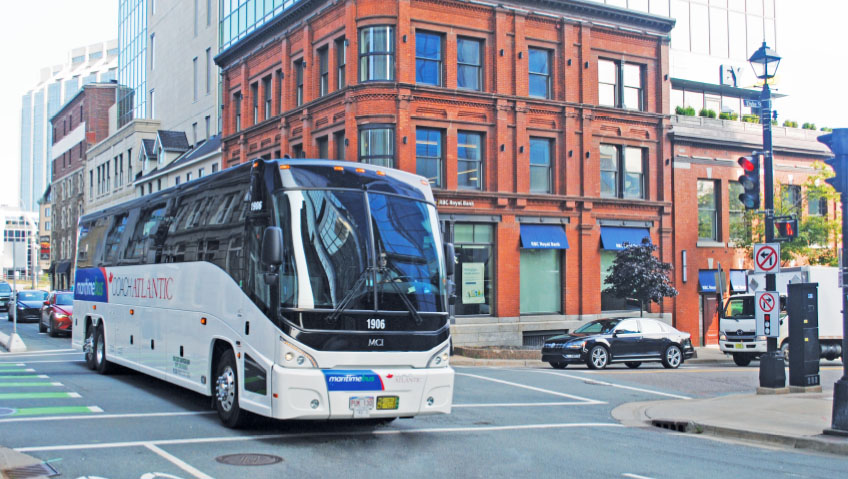“Never doubt that a small group of thoughtful, committed, citizens can change the world. Indeed, it is the only thing that ever has.” – Margaret Mead
For most people, instigating change isn’t just difficult, it’s downright terrifying. Whether personally or professionally, thinking “outside the box” and choosing to follow a different path takes conviction, confidence and courage. While playing it safe is seen as the wiser choice for many, the ability to take a chance—and possibly fail—on something new is what differentiates imitators from innovators.
For those in business—especially those who are self-employed—embracing innovation not only provides a method for navigating any potential upheaval, but is crucial to a company’s ongoing success. Entrepreneurship is certainly not for everyone, but those who are willing and able to strike out on their own not only light the way, but forge a path for others to follow.
In society, we tend to admire people who make their own way in life, even as they’re mocked or ridiculed before they’re truly appreciated for the gains they make and the world they create. Simply described, a changemaker employs innovative solutions to address social issues and resolve social problems, whether by founding a venture or working for a multinational corporation, while also constantly on the lookout for chances to ultimately advance the greater good, according to The Global Hues. Motivating others to join them on the path of transformation and perseverance until that goal is realized is another necessary trait, because while everyone has the potential to be a changemaker, not everyone has the skills.
The innovators and entrepreneurs of the world generally embody three traits: open-mindedness, creative problem-solving and risk-taking. Instead of giving up when goals aren’t met or being discouraged by failure, changemakers remain positive about any outcome and receptive to other viewpoints, which can often lead to finding solutions. Problem-solving via creativity means being passionate about finding a solution to an issue, which involves asking as many questions as possible every step of the way; embracing this process also aids in coming up with new ideas.
Teamwork is also key. Social entrepreneurs—think Blake Mycoskie of TOMS footwear, which donates a pair of shoes to a child in need for every pair bought from the company—concentrate on bringing about systemic change in order to have a broad influence. Every social entrepreneur promotes teamwork and a strong emphasis on empowering others to work together to solve social challenges. For those willing to take a chance, the path requires a great deal of courage, personal strength, stamina, and vision to veer from the rules set by society, but the end result is worth it.
If necessity is the mother of invention, the COVID-19 pandemic created a need for innovation like none other seen in recent memory. Small businesses were severely affected by lockdowns, supply chain issues and loss of revenue still ongoing today. Being ingenious, innovative and forward thinking was necessary simply in order to survive.
Entrepreneurs had to step up and make the most of a truly challenging situation, and many of them did, through business concepts such as curbside pickups and online sales, while others offered Zoom classes for everything from fitness training to learning how to cut hair at home.
Embracing technology and digital equipment has been vital to survival in the past few years, and while many small-company owners used technology as a secondary strategy for conducting business before the pandemic, that changed drastically in 2020. According to a 2020 Salesforce analysis, small firms that are expanding are more likely to speed up their technology investments as a result of the epidemic, as highlighted by Nerdwallet.
According to a Federal Reserve study from April 2021, we won’t know for sure how many small firms have shut down since the pandemic began until it finally ends, but on the other hand, the U.S. Census Bureau reports that 4.3 million enterprises were established in 2020, a 24 percent rise over 2019 in the number of new businesses.
When you talk about change, while many people who lost their jobs remained employed in their respective fields, such as accounting, real estate, or marketing, many others struck out on their own to try something new. By pivoting and taking a chance on a brand new venture either personally or in a new work environment, these independent professionals have discovered and created new opportunities within the landscape of new small enterprises.
Socrates said that, “The secret of change is to focus all of your energy not on fighting the old but on building the new.” Walking the talk goes a long way when trying to change the status quo, so overpromising and underdelivering isn’t going to cut it. Following through on commitments goes a long way in motivating others to bring about constructive change in society.
Obstacles will abound, of course, so patience is necessary, and a skill and virtue that many people simply do not possess. Even if they’re committed and excited about change, they want to see results sooner rather than later—but everything takes time. The difference is that innovators who experience setbacks or long wait times refuse to give up. For every success, there have been countless failures, but the changemakers didn’t view them as failures, only as lessons learned for next time.
When working on a project you’re extremely passionate about, it’s easy to get caught up in thinking about each and every little detail and losing sight of the greater picture and the original purpose. Changemakers think large, aim high, and ensure their effort is in line with the ultimate goal.
Ultimately, the future belongs to those who take risks rather than those who prefer comfort or the status quo. Risk-takers who believe in their instincts make the difference, forging ahead when others call them unrealistic or delusional. The confidence and courage to keep going in the face of sometimes overwhelming adversity is the only way to create real and lasting change in life. Of course, to have that desired influence, motivating and inspiring others means embracing empathy and listening skills, vital to any dynamic leader.
Even if you’re not a changemaker yourself, there are many talented and intelligent individuals working tirelessly to promote change that can inspire you to try something new that may not only impact your own life, but inspire others as well. In short, change is difficult and to bring it about requires hard work, perseverance, dedication, creativity and, above all, the ability to collaborate with and listen to those around you.
In the meantime, if you’re looking for some inspiration, here are just a few innovative changemakers making a huge difference right now:
Rhea Simms, Senior Manager of Global Programs, Planeterra: Liaising with 305 communities in 72 countries to help them ensure local tourism “puts money back in the hands of the locals,” Simms is working to make the future of tourism sustainable and socially responsible, write Tamar Satov and Rosemary Counter in a special to The Globe and Mail. A native of Newfoundland, Simms is making a difference by bringing support, training, and networking opportunities to local tourism enterprises while also encouraging travelers and travel companies to making community tourism a priority. Plus, Planeterra’s services and support are free of charge.
Emily Stevens of CareerFoundry shines a light on Arlan Hamilton: While homeless in 2015, Hamilton started her business, Backstage Capital—a venture capital firm that addresses financing gaps in the tech industry and invests in startups run by entrepreneurs who identify as women, people of color, or LGBTQ—and has since raised more than $15 million and backed over 160 entrepreneurs. The company—which allows anyone to invest as little as $100 and get ownership of the business—also made history on Feb. 1, 2021, when it hit $1 million in contributions in less than nine hours.
Stevens also highlights Dr. Sasikala Devi: As researcher and professor at SASTRA Deemed-to-be-University in Tamil Nadu, India, Dr. Devi did what many innovators do: she saw a problem and developed a solution when the COVID-19 pandemic hit in 2020. Devi developed the first version of LungXpert, a cheap, 90 percent accurate AI-based prognostic tool that enables early identification of cardiovascular and pulmonary disorders, including the new coronavirus, after reviewing 500,000 X-ray pictures from Stanford University. She then equipped medical experts with the means to save lives while the nation was under lockdown.
Changemakers, of course, can be any age, as demonstrated by Ryan Hickman, who, at the age of three, started gathering his family’s recyclables and accompanying his father to the neighbourhood recycling facility, where he was paid $5, writes Michelle Lodge for Investopedia. Hickman was so motivated he began going door-to-door on his bike with a bag for recyclables from his neighbours. By the age of seven he had his own company, Ryan’s Recycling Company, in Orange County, California, and now at 13 has received praise from media outlets, including being named a CNN Young Wonder.
Hickman offers T-shirts with the slogan “Make the Sea Trash Free” for sale on his website, with all proceeds going to the Pacific Marine Mammal Center. More than $14,000 has been raised so far, and 1.5 million cans and bottles have been recycled. Hickman has also launched a non-profit organization called Project 3R, with goals to coordinate and oversee neighbourhood clean-up initiatives while educating children and people around the world about the value of recycling.
Finally, Michael “Mikey” Wren of St. Louis, Missouri founded Mikey’s Munchies Vending, a group of vending machines, at the age of eight. Wren, now 13, volunteers his time to teach financial literacy and organizes an annual drive to give new presents to nearby children in order to give back to the community. He’s also written two children’s books: Biz Is a Wiz, for children from pre-K to third grade, and Mikey Learns About Business, which addresses networking, marketing techniques, and developing a business plan. He schedules speeches about his efforts on a regular basis, participates in two national boards for children, and has donated $10,000 of new apparel to kids in his neighbourhood.






